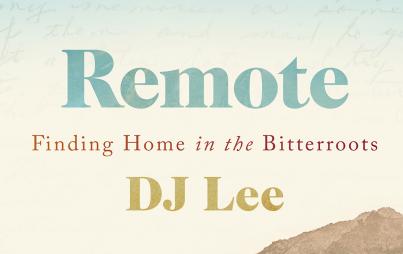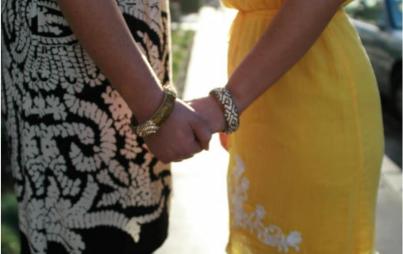
I had retrieved at least one constant in my mother’s life: her love of puzzles and word games.
“Leave the ignition running,” I told my friend waiting in our rental car. Then I tiptoed onto my mother’s property in Citrus County, Florida to rummage through two garbage bins in the driveway, hoping to shed some light on the person she had become. Two weeks earlier, a man who identified himself as my mother’s husband — her fourth — had left a voicemail telling me she had passed away.
It had been my mother's dying wish, he said, for me to know she had been following me online and was proud of the woman I had become.
I hadn’t seen or spoken to my mother in over thirty years. After losing primary custody of me due to issues stemming from her mental illness and addiction, our weekend visits became monthly check-ins until she eventually moved to Florida and seemingly forgot about the daughter she left behind.
In the bins, I found pizza and cereal boxes, packing tape, outdated magazines, and rotten fruit and vegetables, but nothing personal or of sentimental value. As I dug deeper, I unearthed three yellow legal pads with notes, lists, telephone numbers, and then something I immediately recognized as undeniably hers — pages and pages of word games.
Staring at the series of letters and words organized in columns for a two player game, I had retrieved at least one constant in my mother’s life: her love of puzzles and word games.
As a child, I remember Mom’s stack of crosswords books with Velveeta-orange Bic pens holding her place on the current one she was trying to solve. A flimsy card table stood awkwardly in the middle of our living room where she sat in a folding chair carefully separating the edges from the middles of a “Mastermind Impossible to Solve” 1,000 piece puzzle. We often visited a stationery store on Main Street where I ran up and down the sticker aisle inhaling pizza and popcorn scratch and sniffs while she fingered large boxes with display photos of crayons, confetti, stars, and circles. Even at my age, I knew that she didn’t choose a puzzle for its pretty or interesting design but by which sequence of objects was more difficult to finish.
You Might Also Like: You Can't Go Home Again: A Tale Of A Conflicted Cuban Childhood
Solving these mysteries wasn’t a game or a zen hobby for my mother — it was the ultimate challenge. The table and books were off-limits to me and anyone who visited the house. Once when, against my warning, a babysitter snapped a few pieces into place, she flipped the table over and fired the teenager as the cardboard shapes flew into the air before landing into a pile of uncertainty on our carpeted floor. I knew better and watched my mother from the safety of our brown corduroy couch as she adjusted the bifocals on the bridge of her nose and built a frame with the straight edged pieces. She strategically worked her way to the middle as unresolved sections grew into larger amorphous shapes on the vinyl tabletop until she figured out where they belonged. Once the puzzle was solved, she’d coat the back with a special glue and press a page of the Westport News to solidify the picture. Only when it was dry was I allowed to admire her work as she carried it upstairs and hung it in my playroom.
I knew that my mother was deeply affected by her demons, that the confusing disconnects in her brain that made it difficult to be a parent.
But I also knew that she loved me, and despite her abuse, I loved her back.
I often stared at her masterpieces while playing with Barbie and Ken in their dream house and thought about why she loved her difficult puzzles and crosswords so much and why she had to be the only one to solve their mysteries. It seemed lonely not to share.
Maybe her edges and middles never quite fit. Maybe she could never coax the pieces of her alcoholic father or failed marriage back together, but she could be the heroine who picked up the pieces to find their perfect match. Maybe the way the shapes hugged each other calmed her mind and made the past feel a little less chaotic and little more resolved.
I closed the plastic lids, walked back to the car, and slid into the passenger’s seat.
“What did you find?” my friend asked me. I held the curling yellow papers in my lap and looked down at all the words she had unscrambled. How it all must have made sense to her on the page.
“My mom,” I said. My enigmatic, impossible-to-solve mother.








